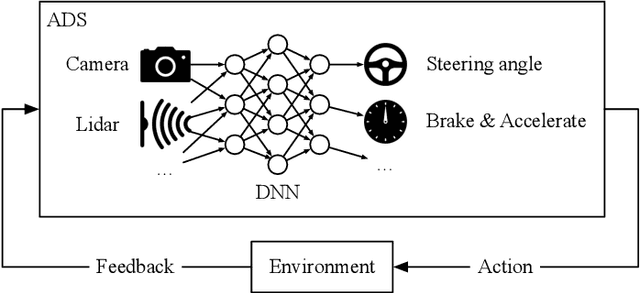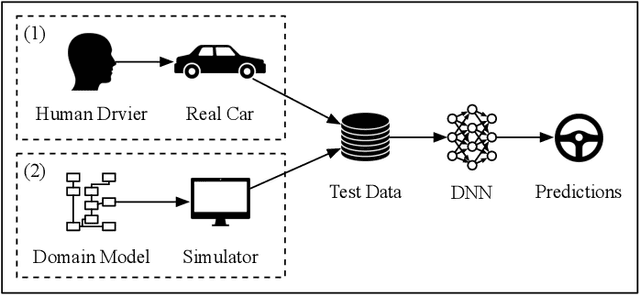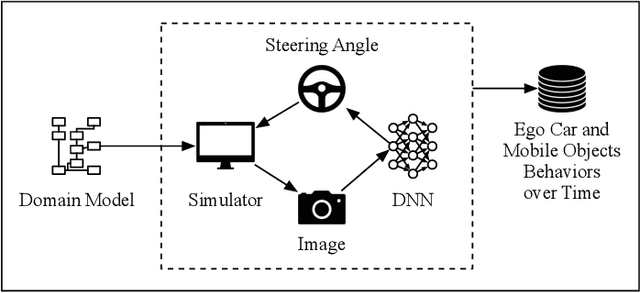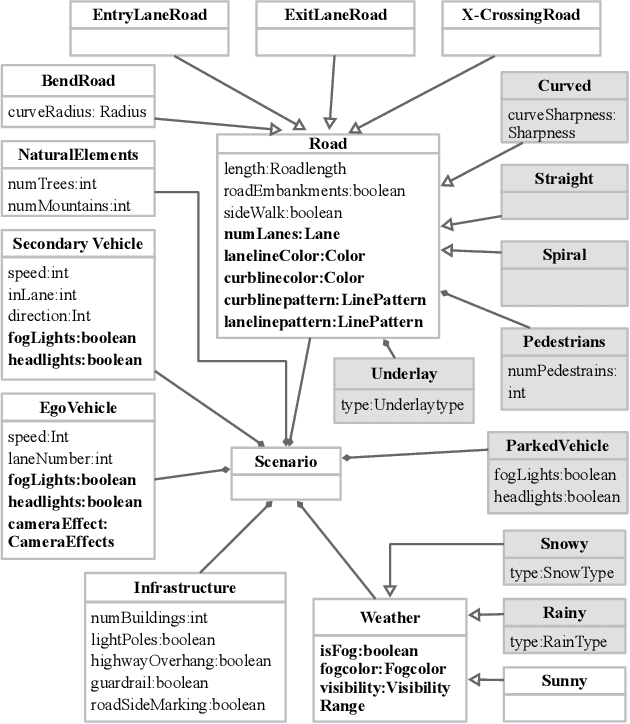Comparing Offline and Online Testing of Deep Neural Networks: An Autonomous Car Case Study
Paper and Code
Nov 28, 2019



There is a growing body of research on developing testing techniques for Deep Neural Networks (DNN). We distinguish two general modes of testing for DNNs: Offline testing where DNNs are tested as individual units based on test datasets obtained independently from the DNNs under test, and online testing where DNNs are embedded into a specific application and tested in a close-loop mode in interaction with the application environment. In addition, we identify two sources for generating test datasets for DNNs: Datasets obtained from real-life and datasets generated by simulators. While offline testing can be used with datasets obtained from either sources, online testing is largely confined to using simulators since online testing within real-life applications can be time-consuming, expensive and dangerous. In this paper, we study the following two important questions aiming to compare test datasets and testing modes for DNNs: First, can we use simulator-generated data as a reliable substitute to real-world data for the purpose of DNN testing? Second, how do online and offline testing results differ and complement each other? Though these questions are generally relevant to all autonomous systems, we study them in the context of automated driving systems where, as study subjects, we use DNNs automating end-to-end control of cars' steering actuators. Our results show that simulator-generated datasets are able to yield DNN prediction errors that are similar to those obtained by testing DNNs with real-life datasets. Further, offline testing is more optimistic than online testing as many safety violations identified by online testing could not be identified by offline testing, while large prediction errors generated by offline testing always led to severe safety violations detectable by online testing.
 Add to Chrome
Add to Chrome Add to Firefox
Add to Firefox Add to Edge
Add to Edge